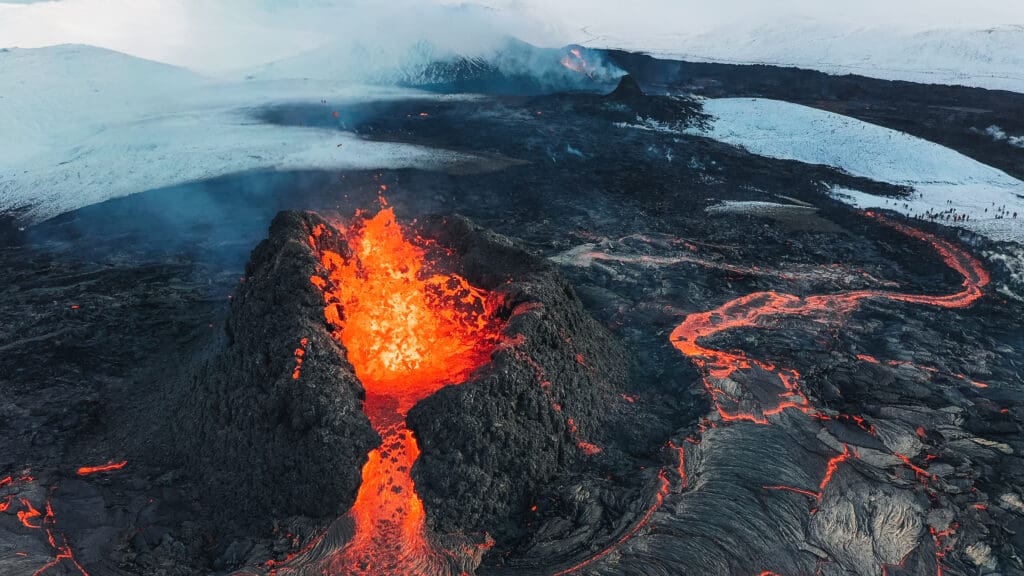Hundreds of holidaymakers faced panic as a volcano erupted near Iceland’s popular Blue Lagoon Thermal Spas, leading to widespread displacement. The eruption occurred on Wednesday night at the Sundhnukagigar fissure, just outside the village of Grindavik, according to the Icelandic Meteorological Office (IMO).
The volcanic activity began at 11.14pm, in the southeast of the island, a region frequented by tourists. This area is also home to the famous Golden Circle route, which attracts around 2.2 million visitors annually. Grindavik, a small fishing village on the Reykjanes Peninsula, is located approximately three miles from the thermal spa.
Dramatic images of the eruption show orange lava spewing from the volcano cone and slowly spreading down its slopes. In response, officials promptly evacuated about 200 residents from Grindavik to ensure their safety. IMO specialist Benedikt Ofeigsson assured public radio RAS2 that no buildings or infrastructure are currently at risk.
This region had not experienced eruptions for around 800 years until March 2021, when seismic activity increased significantly. Volcanologists have since warned that the area has entered a new era of volcanic activity. “The outpourings are lower and the lava is not flowing as fast,” Ofeigsson noted. The previous eruption in the area was much larger, resulting in the evacuation of 4,000 residents last August.
Following the damage from the previous eruption, all affected houses were sold to the state. The civil protection department revealed that about fifty houses had been occupied in recent nights. Earlier this year, three houses in the village were engulfed by flames.
As a precaution, local businesses have temporarily closed. The Blue Lagoon issued a statement online: “Due to a volcanic eruption that commenced in Sundhnúksgígar on November 20, we took the precautionary measure of evacuating and temporarily closing all our operational units. Blue Lagoon will be closed, Thursday 21st November and we will reassess the situation throughout the day.”
Volcanic activity is expected to continue, as Iceland has 33 active volcanic systems, more than any other European country. The nation is situated on the Mid-Atlantic Ridge, a fault line between continents that causes frequent earthquakes and other natural disasters.


